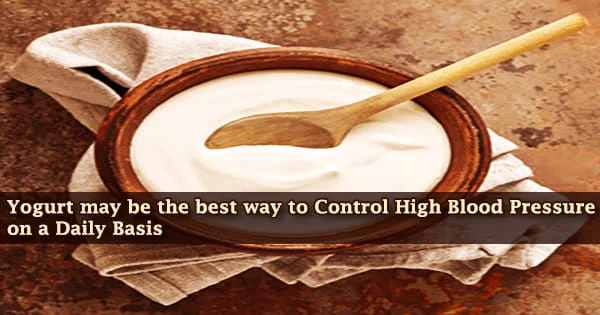According to new research from the University of South Australia, a daily dosage of yogurt could be the next go-to food for people with high blood pressure, whether it’s a dollop on your morning cereal or a simple snack on the move.
Yogurt is a dairy product created from milk that has been fermented with yogurt culture. It contains protein and calcium, and it may help to promote the growth of beneficial bacteria in the gut. The health advantages of yogurt range from osteoporosis prevention to irritable bowel disease relief and digestion aid, but they vary depending on the type of yogurt taken.
The study, which was conducted in collaboration with the University of Maine, looked at the links between yogurt consumption, blood pressure, and cardiovascular risk factors, and discovered that yogurt consumption is linked to decreased blood pressure in people with hypertension.
Hypertension, or high blood pressure, is a condition with little symptoms. However, if left untreated, it can lead to significant complications such as heart attacks and strokes. Two numbers are used to record blood pressure.
Hypertension (high blood pressure) affects more than a billion individuals worldwide, increasing their risk of cardiovascular illnesses (CVDs) such as heart attack and stroke.
Dairy foods, especially yogurt, may be capable of reducing blood pressure. This is because dairy foods contain a range of micronutrients, including calcium, magnesium, and potassium, all of which are involved in the regulation of blood pressure.
Dr. Alexandra Wade
CVDs are the largest cause of death globally. One person dies from a CVD every 36 seconds in the United States and every 12 minutes in Australia.
According to UniSA researcher Dr. Alexandra Wade, this study adds to the growing body of evidence linking yogurt to better blood pressure results in hypertensive adults.
“High blood pressure is the number one risk factor for cardiovascular disease, so it’s important that we continue to find ways to reduce and regulate it,” Dr. Wade says.
“Dairy foods, especially yogurt, may be capable of reducing blood pressure. This is because dairy foods contain a range of micronutrients, including calcium, magnesium, and potassium, all of which are involved in the regulation of blood pressure.”
“Yoghurt is especially interesting because it also contains bacteria that promote the release of proteins which lowers blood pressure. This study showed for people with elevated blood pressure, even small amounts of yogurt were associated with lower blood pressure.”
“And for those who consumed yogurt regularly, the results were even stronger, with blood pressure readings nearly seven points lower than those who did not consume yogurt.”
The Maine-Syracuse Longitudinal Study recruited 915 community-dwelling people for the study. A meal frequency questionnaire was used to determine how much yogurt was consumed on a regular basis. Blood pressure that is greater than or equal to 140/90 mmHg is considered high (normal blood pressure is less than 120/80 mmHg).
Future observational and intervention studies examining the possible advantages of yogurt should continue to focus on at-risk populations, according to the researchers.
















